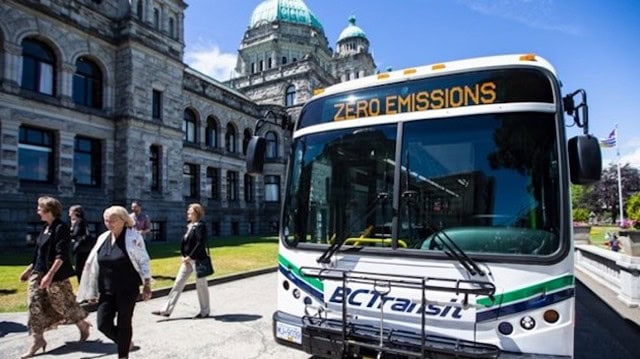
BC Transit is charting a course to a fully electric fleet by 2040.
The Crown corporation announced Tuesday it will replace nearly 1,200 buses and add another 350 over the next decade in an effort to reduce emissions.
That course starts with the deployment of 10 battery-based heavy-duty electric buses in fiscal year 2020-21, which were purchased with federal and provincial government funds.
Two years later, the Crown corporation will only purchase electric heavy-duty buses for its fleet, followed by exclusively purchasing electric high-capacity buses, light-duty buses and medium-duty buses in subsequent years.
BC Transit says nearly 150 electric vehicles are already on order. Through to fiscal year 2028-29, the organization plans to gradually replace nearly 1,200 buses, an effort that will more than halve its greenhouse gas emissions in 10 years, and beat its 2040 provincial reduction target a decade early.
When coupled with efforts to convert vehicles to low carbon technologies – such as compressed natural gas – the measure will cut the organization’s 2018-19 emissions by more than 80%.
BC Transit says it is looking to add 34 medium-duty and 68 heavy-duty compressed natural gas buses to its existing fleet of 128, which currently operate in the regional district of Nanaimo and within the City of Kamloops.
“British Columbia’s largest and fastest-growing source of carbon pollution is the transportation sector,” said B.C. Minister of Transportation and Infrastructure Claire Trevena, in a news release.
The plan builds on a federal and provincial funding commitment of $79 million announced earlier this month. The funds will support the purchase of 118 new buses for Victoria and B.C.
As next steps, BC Transit will work with the Ministry of Transportation and Infrastructure on anticipated funding requirements for its low carbon program. It will also work with BC Hydro to determine the readiness of B.C. infrastructure to support electric fleets across B.C.


